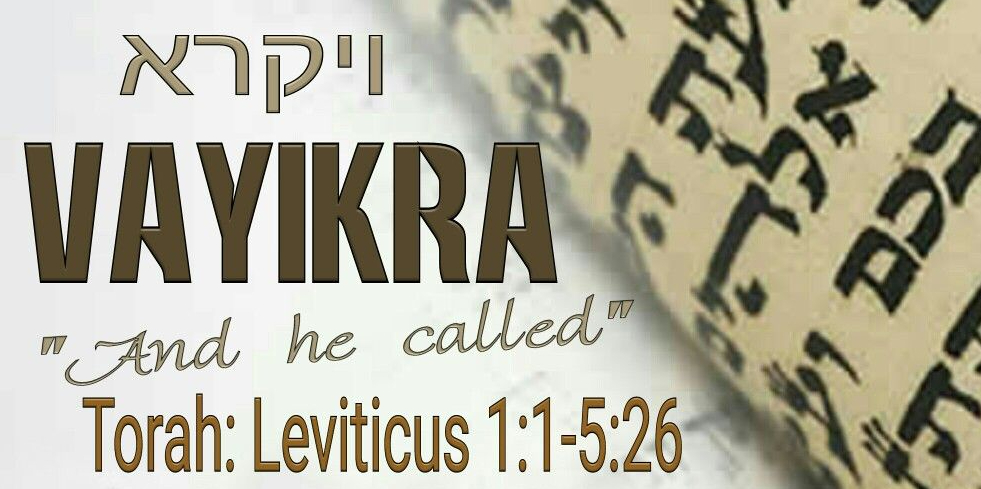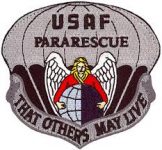VAYIQRA’ וַיִּקְרָ֖א (And He called) LEVITICUS 1:1-5:26
PROPHETS : 1 SAMUEL 15:1-34 GOSPEL : MATTHEW 5:23-30
by Min. Donald H. Garrett
TORAH:
This week we start a new book: Leviticus. Vayiqra is the Hebrew word for this book and this parashah. It means: And He called. The He is YaHVaH and the one called is Mosheh.
According to the Sages, this book is called Torah Kohaniym (Torah of the Priests), because it deals mostly with their responsibilities and how to perform Temple service. Yet, what can we glean from this book from YaHVaH that is applicable to us today.
Where did YaHVaH speak to Mosheh after he was called? In the Tabernacle, or rather, in YaHVaH’s presence. He begins by telling Mosheh how to properly present the offerings of the people. The offering shall be unblemished and presented before YaHVaH, blooded, skinned, and cut up. The priests are to arrange the altar and light the fire. Next, the pieces are to be arranged on the altar, the insides & feet must be washed. The same is repeated for sheep, goats, and birds. Applied to today, offerings are usually of money or services. Blemished offerings are spoken of by Yeshua in the Gospel section below. The giving of money or service should be without regret, grudgingly, or for some form of repayment. It should be a free-will, love gift to YaHVaH and given in the Church, Temple, or Synagogue. You are drawing near to YaHVaH with the offering, so why would you mar it or make it of less worth. Blooded, skinned, and cut up would refer to how the pastor or rabbi prepares your offering, not you. This would refer to breaking down your offering for proper use, making sure your attitude is right, and separating your offering into portions or time appropriateness.
Note, it is the pastor’s or rabbi’s responsibility to arrange and accept your offering. It is also his responsibility to properly prepare the sanctuary where it is received (arrange his own podium, prepare his own sermon, etc.) instead of others.
Chapter 2 discusses the offerings made with meal and harvest first-fruits. Two important things here, 1) unleavened (no sin) and 2) with oil and frankincense (with love and blessing).
Chapter 3 talks about specific types of offerings, but the key point is that in all the offerings, the insides and fat must be burned up on the altar for a satisfying aroma. Since YaHVaH commanded us not to eat fat and the meat of the offerings were set aside for the priests to eat, it stands to reason that YaHVaH also does not want us to eat the internal organs either. In relation to offerings of today, this means to cleanse or throw out the portion of the offering that is not appropriate for use. How you would do this with money offered, I’m not quite sure. Services would be easy to “trim the fat” by simply telling the person, “No it is not necessary for you to do this or that when we only need this one thing done.”
Chapter 4 deals mostly with sin offerings. Today, believers in Yeshua know He was our one and only sin offering. For other Jewish believers, I caution you to make sure you offer up your sin offerings with your other offerings; though I would prefer ALL come to the knowledge that Yeshua is the Messiah that died for everyone’s sins. Notice here that I did not say there was not an offering necessary for other things. Some Messianic and Christian believers erroneously believe that Yeshua did away with ALL offerings.
Chapter 5 expresses what is called Guilt offerings. These are offerings for sin or contaminating oneself unintentionally or without knowledge at the time (but learning of it later), which makes one guilty. Some might say the act is done and can’t be undone, so don’t worry about it. Yet, a truly devout person would FEEL the guilt of dishonoring his creator. Therefore, YaHVaH in His grace gave us a way to absolve ourselves of this guilt. Guilt can really destroy a person if not dealt with. Prayer and advocacy with Yeshua is our guilt resolver today, along with repentance. We are forgiven and guilt lifted if we simply admit our faults, repent, and ask for His forgiveness. Make note here that repentance is an action which leads us into our Haftarah.
PROPHETS:
In 1 Samuel 15, King Saul is given a command by YaHVaH (from the lips of Samuel) to “Now go and strike down Amalek and destroy everything he has. Have no pity on him – kill man and woman alike, infant and suckling alike, ox and sheep alike, camel and donkey alike” (Tanach, v. 3).
What does Saul do, he keeps the Amalek King alive, along with the best of the sheep, cattle, bulls, and all that was good. He let the warriors keep the spoils. When Samuel comes to Saul, Saul has the audacity to proclaim that he has fulfilled the Word of YaHVaH. Samuel challenges that by saying he hears sheep and cattle. Saul blames the people (warriors) needing the livestock for offerings to YaHVaH. Samuel commands him to Desist (today we would say Enough or Shut up). He calls Saul’s actions evil in the eyes of YaHVaH. Saul argues, “But I did heed the voice of YaHVaH” (Tanach, v. 20), yet he continues in his argument that he left King Agag alive and the people took the spoils, both in disobedience to what he proclaimed.
Note, Saul has yet to repent in this confrontation. Only after being told by Samuel, the declaration of YaHVaH in verse 22 of the depth of Saul’s sin (offerings are no substitute for obedience, rebelliousness is equivalent to sorcery, and rational verbose equates to idolatry) and being rejected as King, does Saul beg for forgiveness and says he will prostrate himself to YaHVaH. Samuel proclaims, “Moreover, the Eternal One of Israel does not lie and does not relent, for He is not a human the He should relent” (Tanach, v. 29). The commentary says, “The decree is final; repentance will not rescind it” (Tanach), yet Saul never repented, he only begged forgiveness. It is Saul’s lack of repentance that makes the proclamation stand. Samuel had to kill King Agag. If Saul had fell down prostrate immediately, repented, killed King Agag himself, and ordered the slaughter of the spoils as soon as Samuel first challenged him, I believe YaHVaH would have honored Saul just as He did David later. True repentance requires action, something Saul did not do here.
How do we act today? Do we try to say we are fulfilling the Word of YaHVaH while we are yet violating it? Do we take pity on someone instead of exposing their sin? Do we make excuses, rebel, or blame someone else for our own sin? If so, then stop NOW and repent.
GOSPEL:
Yeshua is speaking in today’s Gospel. He first shows the blemish on an offering, “If therefore you shall offer your gift at the altar, and there remember that your brother has something against you; leave your gift there before the altar and go away to be first reconciled with your brother, then return and offer your gift” (v. 23-24, my translation). Holding onto malice towards another then would be considered a blemish on your offering because you are not at peace and love with your fellow man, nor forgiven him; therefore, why would you expect it from YaHVaH.
Next, Yeshua tells us to agree with your adversary quickly so that we do not wind up in prison having to pay the full price. This refers to settling of disputes of money and property mostly. It would not apply to many violations of YaHVaH’s laws or man’s law.
Lastly, Yeshua teaches that LUST of a woman is essentially adultery. Some may challenge this by saying you must lust some in order to be attracted to the woman. Yet, pay attention here. If you are not married and the woman is not married, you cannot commit adultery. Therefore, Yeshua is speaking directly to those who are married to quit lusting after other women and be content with your wife. Lust after your wife is not adultery, it is the intended part of attraction to maintain your relationship with her. Yeshua goes on to say pluck away a body part if it is causing you to sin or be in danger of going to hell. There is much discussion as to whether this is literal self-mutilation or satire representing control of yourself. Plucking out your eye could relate to averting your gaze, closing your eyes, or more. Your right hand in the Bible is your power. Removing your right hand, could also mean to discard those friends around you causing you to sin.
May YaHVaH bless you always.
(c) Copyright March 2021 Min. Donald H. Garrett and Odon Obadyah Ministries, Inc.
Previous: PEQUDEY
Next: TZAV








